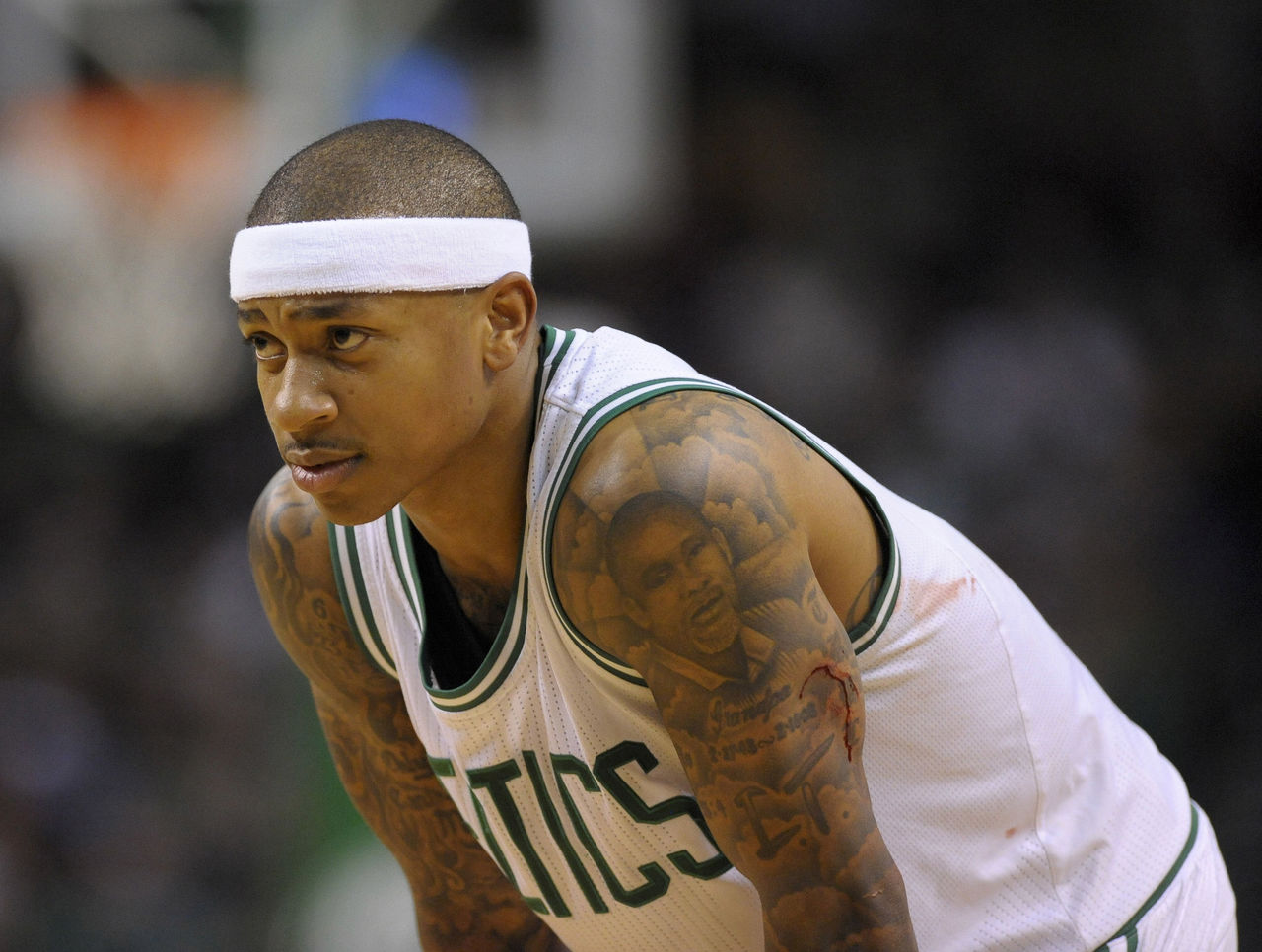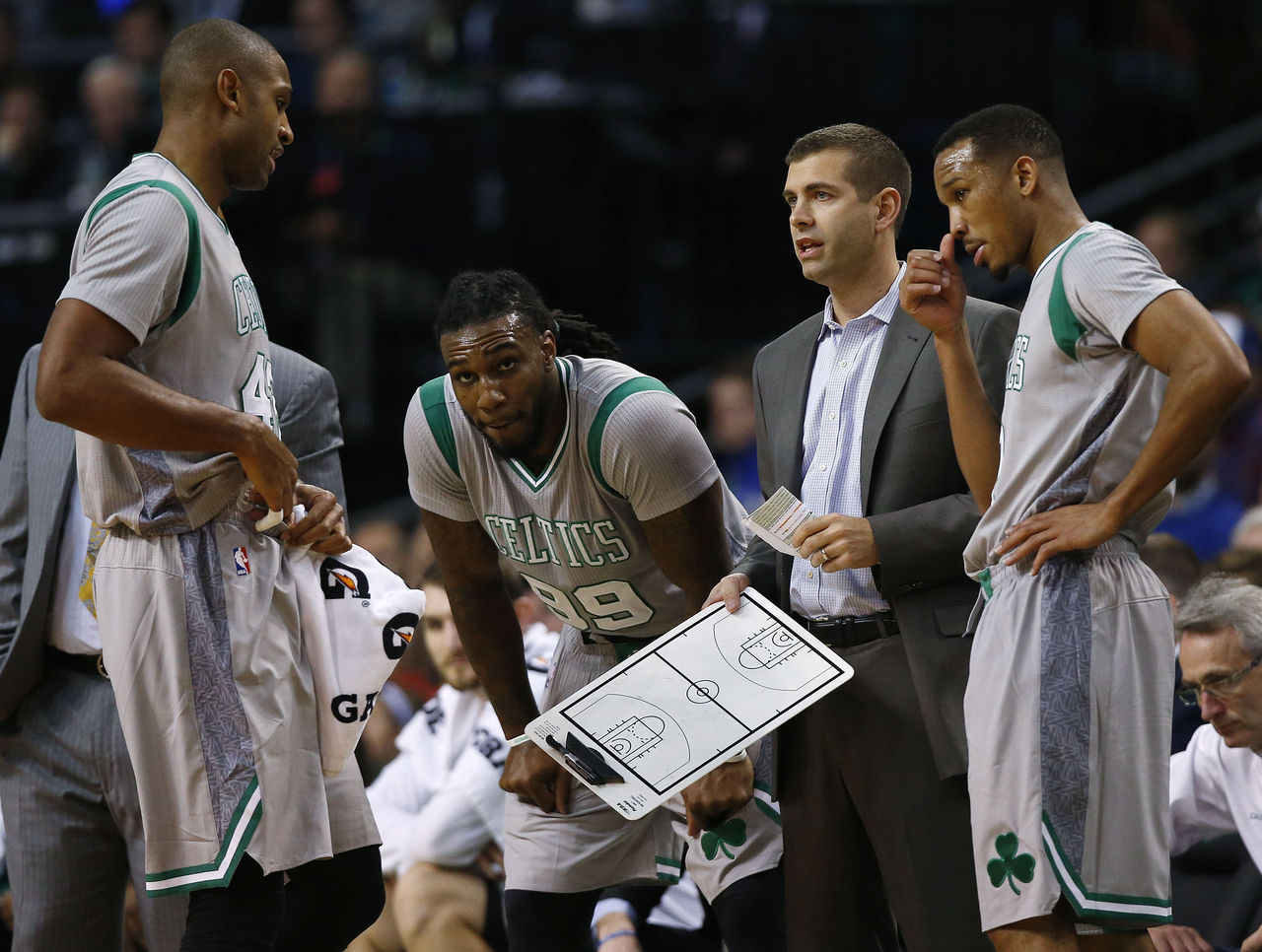Would the Celtics be the East's worst 1-seed ever?
With their latest narrow victory in the books, the Boston Celtics have pulled into a virtual tie with the defending champion Cleveland Cavaliers for first place in the Eastern Conference.
The Cavs still hold the top spot in reality, as they boast the slightly higher winning percentage and are one game ahead of Boston in the loss column, but there are reasons to believe the Celtics will pull ahead by season's end.
First and foremost, Boston has the third-easiest remaining schedule - and the easiest among East teams - while Cleveland has to play the fourth-toughest East schedule over their final 10 games, according to NBA.com.
Another key factor in deciding the East's No. 1 seed will be the lone remaining matchup between the Cavs and Celtics (April 5), which takes place in Boston, with Cleveland on the second night of a back-to-back.
Those are among a variety of factors that now see the Celtics as the top seed in most projection models, which brings us to our big question: Should they outlast the champs to claim regular-season supremacy, would the 2016-17 Celtics be the East's worst No. 1 seed of all time?

The Celtics are on pace for 53 wins, but own an underwhelming (for a top team) average point-differential of plus-2.7 and a net rating of plus-3.1 per 100 possessions. Those numbers usually reflect the performance of a team in the high 40s, not in the mid-50s, and it's important to remember that point-differential is often a better predictor of future/postseason success than win percentage is.
To that point, in the 70-year history of the NBA, only nine teams have won 64.8 percent of their games - as Boston is currently doing - while posting an average point-differential worse than plus-3.0. And only three of those nine finished atop their respective conferences, with the most recent example being the 1975-76 Celtics.
Then there's the fact Boston has gone a combined 4-7 against the three other teams that make up the East's elite.
| Team | Record | +/- | Double-digit wins | Record vs. Top 4 |
|---|---|---|---|---|
| Cavs | 47-25 | +3.7 | 22 | 7-2 |
| Celtics | 48-26 | +2.7 | 15 | 4-7 |
| Wizards | 45-28 | +2.4 | 17 | 4-6 |
| Raptors | 44-29 | +4.1 | 22 | 5-5 |
Whether it's the Celtics or the Cavs who eventually claim the top spot, it's pretty safe to project a 54-win (.659) ceiling for the East's No. 1 seed this year. Since the NBA expanded to 10 franchises in 1966-67, only seven teams have led the Eastern Conference with a winning percentage below .660.
| Team | Record | +/- | vs. East 2-4 | Playoffs |
|---|---|---|---|---|
| 1970-71 Knicks | 52-30 | +5.02 | 9-9 | Lost ECF |
| 1975-76 Celtics | 54-28 | +2.34 | 10-7 | Won Finals |
| 1976-77 Sixers | 50-32 | +3.94 | 9-3 | Lost Finals |
| 1978-79 Bullets | 54-28 | +4.99 | 6-6 | Lost Finals |
| 2001-02 Nets | 52-30 | +4.16 | 5-7 | Lost Finals |
| 2002-03 Pistons | 50-32 | +3.68 | 6-5 | Lost ECF |
| 2006-07 Pistons | 53-29 | +4.16 | 7-3 | Lost ECF |
| 2016-17 Celtics | 48-26 | +2.66 | 4-7 | ? |
You'll notice that all seven of the teams in question enjoyed some measure of postseason success, but unlike this year's Celtics, the majority of those teams still cobbled together point-differentials more indicative of elite contenders, and mostly took care of business against the East's top four. If you compared the 2017 Celtics to the last 50 teams who've landed the East's No. 1 seed, they'd rank 46th out of 51 in win percentage, 50th in point-differential, and dead last in their performance against the conference's top-four teams.
Boston fans can cling to the memory of the aforementioned 1975-76 Celtics - who found a way to win the championship after a 54-win, plus-2.3 campaign - but even that seemingly overrated Celtics squad went 10-7 against the East's other top-four teams during the regular season.
There's essentially no historical precedent for a team with so few wins, so unremarkable a point-differential, and so poor a record against fellow East contenders finishing first, as the Celtics now seem poised to do.

The 2016-17 Celtics boast formidable credentials. They're one of four teams to rank top-10 in both offensive and defensive efficiency, they're led by a legitimate All-Star and potential All-NBA guard in Isaiah Thomas, have a dynamic No. 2 in Al Horford, utilize one of the league's deepest rosters, and are well coached.
A deeper examination of their season, however, suggests a solid-yet-unspectacular outfit that's not nearly as imposing as their record - and their potential No. 1 seed - would usually suggest.
Remember that when the playoffs tip off, and the Celtics look to win the franchise's first postseason series in five years.
(Photos courtesy: Action Images)